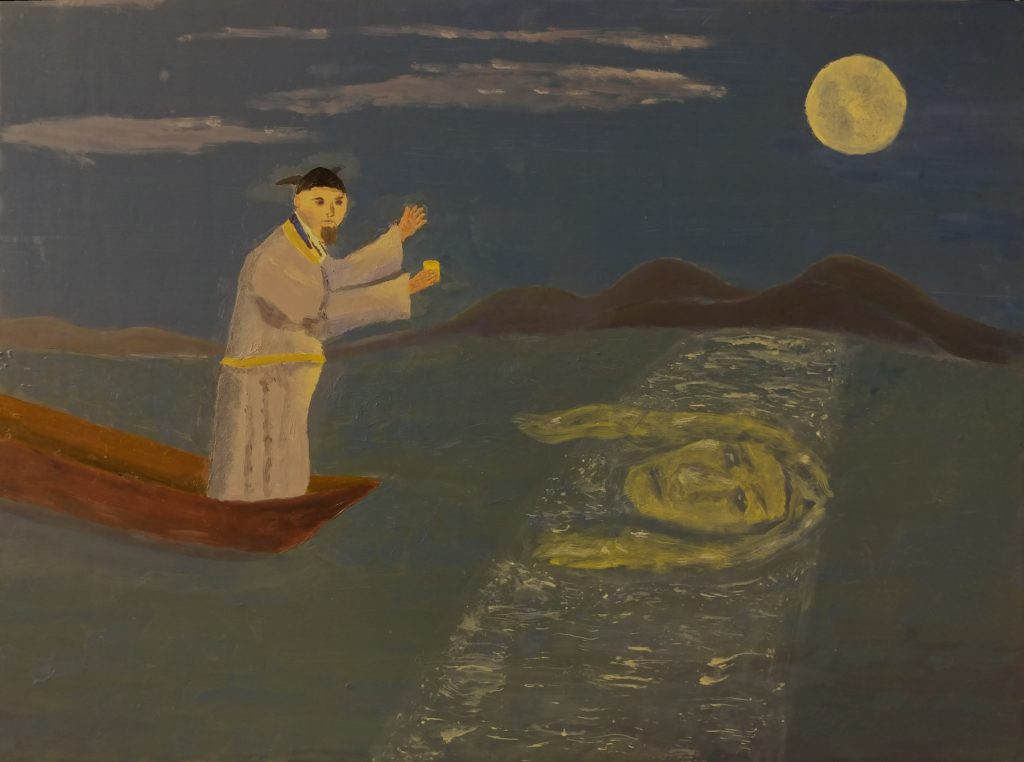(Reuters) Britain says Iran seizes two oil tankers in Gulf, Iran says captured one.
The Iranians are such fluent liars, the Russians are trustworthy by comparison. This comes out of the history of Shi’ism, an oppressed sect. With the challenge of survival, Shia jurists legitimized lying to the oppressors. Hence the creative fluency of lies now visible.
In opposition, our side adheres to the diplomatic mindset, with measured responses that are easily outraced by Iranian jack rabbits. Quoting foreign minister Jeremy Hunt,
“These seizures are unacceptable. It is essential that freedom of navigation is maintained and that all ships can move safely and freely in the region.”
Throwing diplomatic boiler plate at a pack of lying jack rabbits, Minister Hunt sounds like he has his panties in a bunch. At least he should have his stripped pants pressed. The tortoise versus the hare; who will win?
The advantage of a game is that, played well, it allows one to leapfrog intermediate steps where one is losing, to arrive at a winning position that might be somewhat durable. If the game predicts otherwise, there is the chance to abandon it, or radically change course. Either way is better than the “best teacher”, experience, which is also the most expensive.
We can’t claim we are winning. The deployment of U.S. naval assets has not deterred much, if anything. The assets mean nothing without rules of engagement that risk conflict. The Iranians have a fine sense of this, which means they are applying more intelligence to the problem than we are.
The above is not meant to advocate a particular course. The broad options are to double down or walk away. The conflict is currently almost perfectly cold. As a next step the game may offer only the next level of temperature, a slight smolder. Whether it escalates can be modeled by a number, a “coefficient“. A positive coefficient is like bank interest; a negative coefficient is like a loan rate.
- The U.S. coefficient is currently negative, with aversion to conflict. It would become positive if the forces now deployed engage in punitive, as opposed to defensive, actions.
- The Iranian coefficient is not yet obvious. If the Iranian coefficient is negative, the U.S. and allies are in control of the heat. But it is probably weakly positive.
- If the Iranian coefficient is positive, the game heats up rapidly. With exhaustion of will or resources, offensive inclinations may reach a limit short of total war, the coefficient turning negative. Or it may not; while the German aggressive impulse was exhausted in World War I, it remained potent to the end of World War II. The German coefficient remained positive to the end.
- If both the U.S. and Iran coefficients are strongly positive, the result is total war.
- If one coefficient is positive and the other negative, a conflict tends to smolder.
In the absence of a Game of Nations style simulation of the New Tanker War, which might provide sage-like insights, the obvious next-step is a naval convoy system, with rules of engagement that would result in “punitive damages.”
Game players would be eager to know whether this would result in Iran’s use of Silkworm batteries, emplaced along the Strait, small-boat swarm attacks, and proxies. Though DoD games the battlefield with perfection, the coefficient of this article is the property of a society as a whole.
(CNN) US preparing to send hundreds of troops to Saudi Arabia amid Iran tensions. Construction units have been deployed to Prince Sultan airbase, which may receive an upgraded CAOC and a Patriot battery, enabling deployment of the most advanced assets.
The U.S. coefficient is creeping towards positive. Elsewhere, game players take notice, changing the numbers assigned to our intentions.
